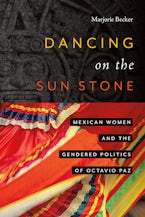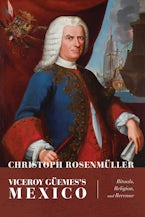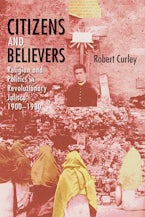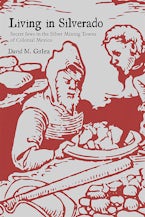- Home
- Diálogos Series
- history
- political science
- law
- Gamboa's World
Gamboa's World
Justice, Silver Mining, and Imperial Reform in New Spain
Published by: University of New Mexico Press
Gamboa's World examines the changing legal landscape of eighteenth-century Mexico through the lens of the jurist Francisco Xavier de Gamboa (1717-1794). Gamboa was both a representative of legal professionals in the Spanish world and a central protagonist in major legal controversies in Mexico. Of Basque descent, Gamboa rose from an impoverished childhood in Guadalajara to the top of the judicial hierarchy in New Spain. He practiced law in Mexico City in the 1740s, represented Mexican merchants in Madrid in the late 1750s, published an authoritative commentary on mining law in 1761, and served for three decades as an Audiencia magistrate. In 1788 he became the first locally born regent, or chief justice, of the High Court of New Spain. In this important work, Christopher Albi shows how Gamboa's forgotten career path illuminates the evolution of colonial legal culture and how his arguments about law and justice remain relevant today as Mexico debates how to strengthen the rule of law.
Christopher Albi is an associate professor of history at SUNY New Paltz.
"Francisco Xavier de Gamboa was neither famous nor a nobody. But he was in the 'pivotal middle' of Spanish society, of colonial Mexican politics, and of the dynamic developments in the law and in the silver-powered economy of his century. Christopher Albi therefore sets out to persuade us that 'Gamboa's world' opens a unique, eye-opening, opinion-changing window onto how Spain's late-colonial empire functioned. He does a superb job. I am fully persuaded. From now on, anyone interested in better understanding eighteenth-century New Spain will need to spend time in Albi's world."--Matthew Restall, author of Seven Myths of the Spanish Conquest and When Montezuma Met Cortés: The True Story of the Meeting That Changed History
"Gamboa's World offers a powerful new vision of governance in New Spain, detailing the ways of a regime that was primarily judicial by focusing on the career of one of its most engaged judges. We see anew how 'Bourbon reforms' were contested and contained by jurists committed to working with--and at times against--powerful economic interests and diverse popular communities to preserve the kingdom that sustained Spain's empire and fueled its trades through the eighteenth century."--John Tutino, author of Mexico City, 1808: Power, Sovereignty, and Silver in an Age of War and Revolution
"This book is both very smart and highly entertaining, even funny at times. It is a treasure trove of material on law and legal culture, the silver economy, and late-colonial Spanish rule overall. Yet because the author smuggles all this in with a skillful narration of the life and times of a scrappy, brilliant Mexican jurist named Gamboa, readers hardly need to work for it at all."--Bianca Premo, author of The Enlightenment on Trial: Ordinary Litigants and Colonialism in the Spanish Empire
"In exploring the private life, educational trajectory, and distinguished legal career of Francisco Xavier de Gamboa, Christopher Albi challenges various long-held assumptions regarding eighteenth-century New Spain. This is required reading for all those interested in Spanish America's tumultuous eighteenth century."--Frances L. Ramos, author of Identity, Ritual, and Power in Colonial Puebla
"In this excellent book, the world of Francisco Xavier de Gamboa, one of the premier lawyers of colonial Mexico, comes to life again. Christopher Albi delves deep into the archival record to grasp how the complex colonial law actually worked in litigation. While providing this innovative analysis, Albi also crafts a wonderfully enjoyable read for undergraduate students and experts alike."--Christoph Rosenmüller, author of Corruption and Justice in Colonial Mexico, 1650-1755
Acknowledgments
Introduction
Chapter One. The Education of a Novohispano Lawyer
Chapter Two. Courtroom Combat
Chapter Three. The Basque Atlantic
Chapter Four. The Mining Laws of New Spain
Chapter Five. Bourbon Crime and Punishment
Chapter Six. The Underground Enlightenment
Chapter Seven. The Resilience of the Old Order
Conclusion
Notes
Bibliography
Index










